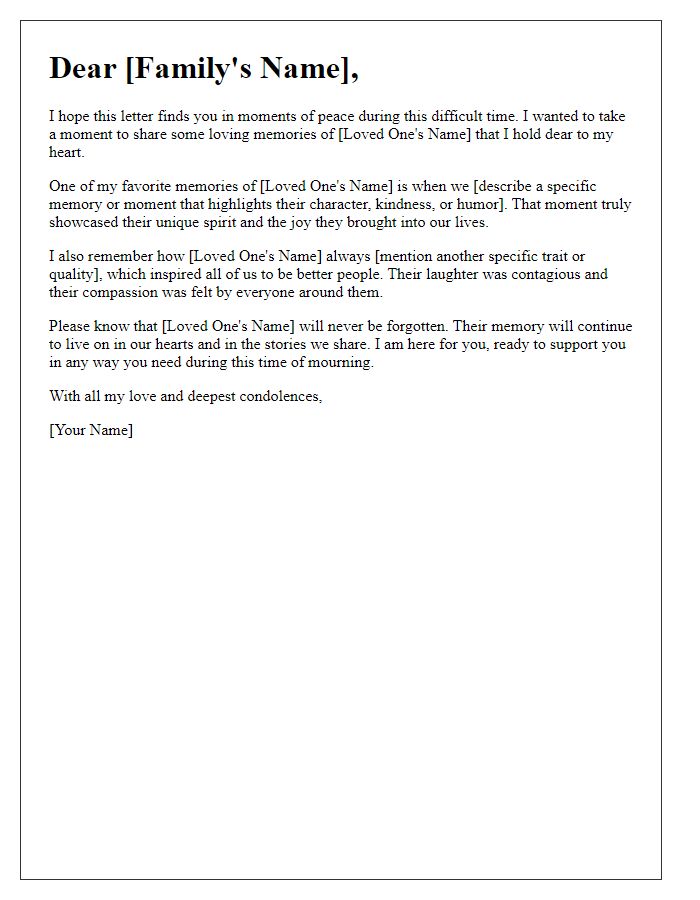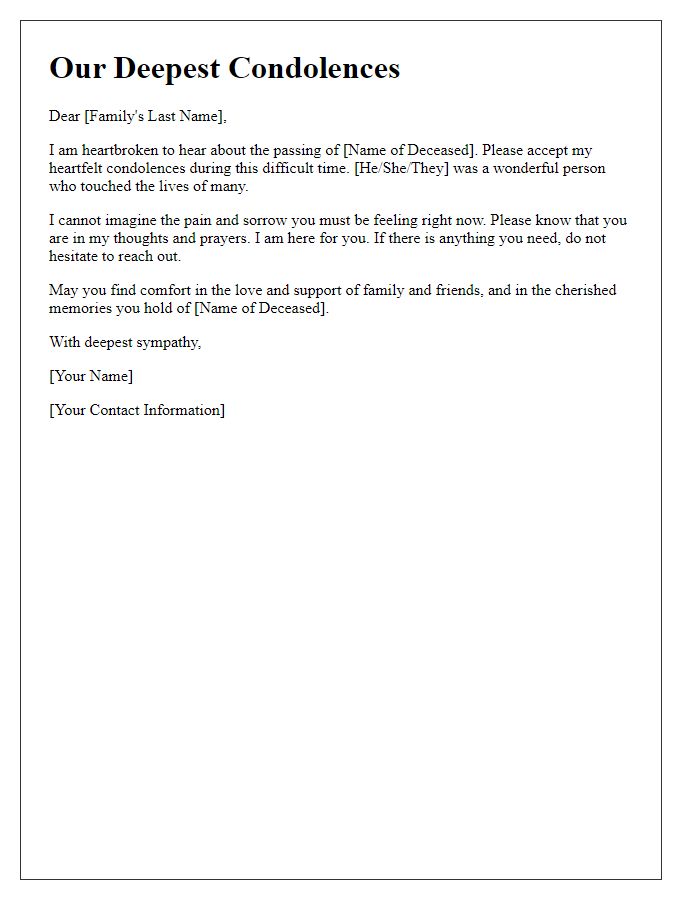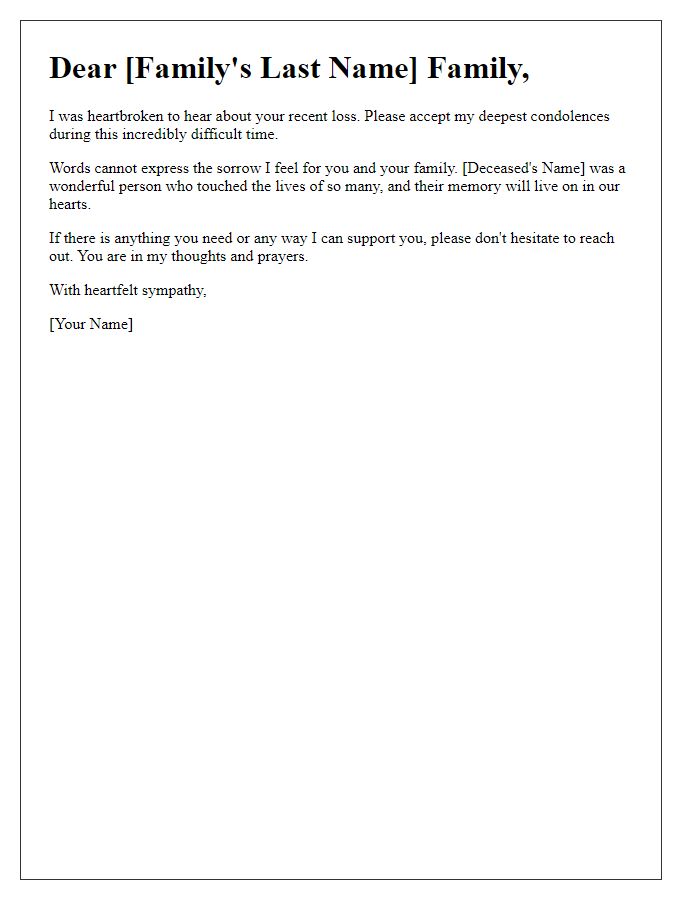Losing a loved one is one of the most challenging experiences anyone can endure, and expressing condolences can be a heartfelt way to provide comfort. In these moments of sorrow, a few sincere words can make a significant difference in the grieving process. It's important to convey your love and support, acknowledging the deep pain that the family is facing. If you're looking for guidance on how to craft the perfect condolence letter, read on for some thoughtful templates and tips.

Personalization and recipient's name
In moments of profound sorrow, the heart feels heavy. The loss of a cherished loved one impacts families deeply, creating a void that echoes through the home and heart. Memories shared in joyful gatherings now linger in quiet reflection. The resilience of family ties becomes a source of strength, with each cherished moment serving as a reminder of love and connection. In times of grief, the support of friends and community plays a crucial role, offering comfort and solace as the healing journey begins. Together, the family can honor the memory of their dearly departed, celebrating a life lived with purpose and joy.
Acknowledgment of the loss and its impact
The loss of a beloved family member profoundly impacts the lives of those left behind, creating a heart-wrenching void. Grieving families often struggle to navigate emotions ranging from sorrow to disbelief in the wake of someone's passing, particularly if that individual played a crucial role in family gatherings or celebrations. In moments of deep loss, memories become cherished treasures, reminding survivors of laughter shared, lessons learned, and unconditional love exchanged. The support from friends and the community offers solace, helping families to slowly find healing amidst their grief.
Sharing a fond memory or positive trait of the deceased
In my interactions with Thomas, I always admired his unwavering kindness and infectious laughter that could light up any room. At a gathering in Central Park, he shared delightful stories of his travels across Europe, particularly his time in Italy, where he explored the art of gelato-making, a passion that he pursued relentlessly. This genuine enthusiasm for life left a lasting impact on everyone fortunate enough to know him. His ability to connect with people and his compassionate nature will be deeply missed by all who had the privilege of calling him a friend.
Offer of support or assistance
During times of loss, the feeling of grief can be overwhelming for families. Offering support can be expressed through heartfelt messages or gestures that signify a willingness to help. Making specific offers, such as preparing meals or providing transportation, can relieve some burdens. It's important to acknowledge the significance of their loss, mentioning the deceased individual's qualities or memories shared, creating a connection. Additionally, suggesting a listening ear or companionship during difficult days can provide comfort, emphasizing that they are not alone in their sorrow. Reaching out with genuine compassion and respect can positively impact the healing process for grieving families.
Expression of sympathy and closing regards
A heartfelt expression of sympathy can provide some comfort during difficult times. Words of support envision the profound pain of loss, reminding the bereaved family that cherished memories endure. In moments of grief, knowing others care can ease the burden of sorrow. Closing regards serve as a gentle reminder of ongoing support, extending compassion and solidarity as the family navigates their journey of healing.
Letter Template For Expressing Condolences To Family Samples
Letter template of comfort and remembrance for a family experiencing loss.













Comments